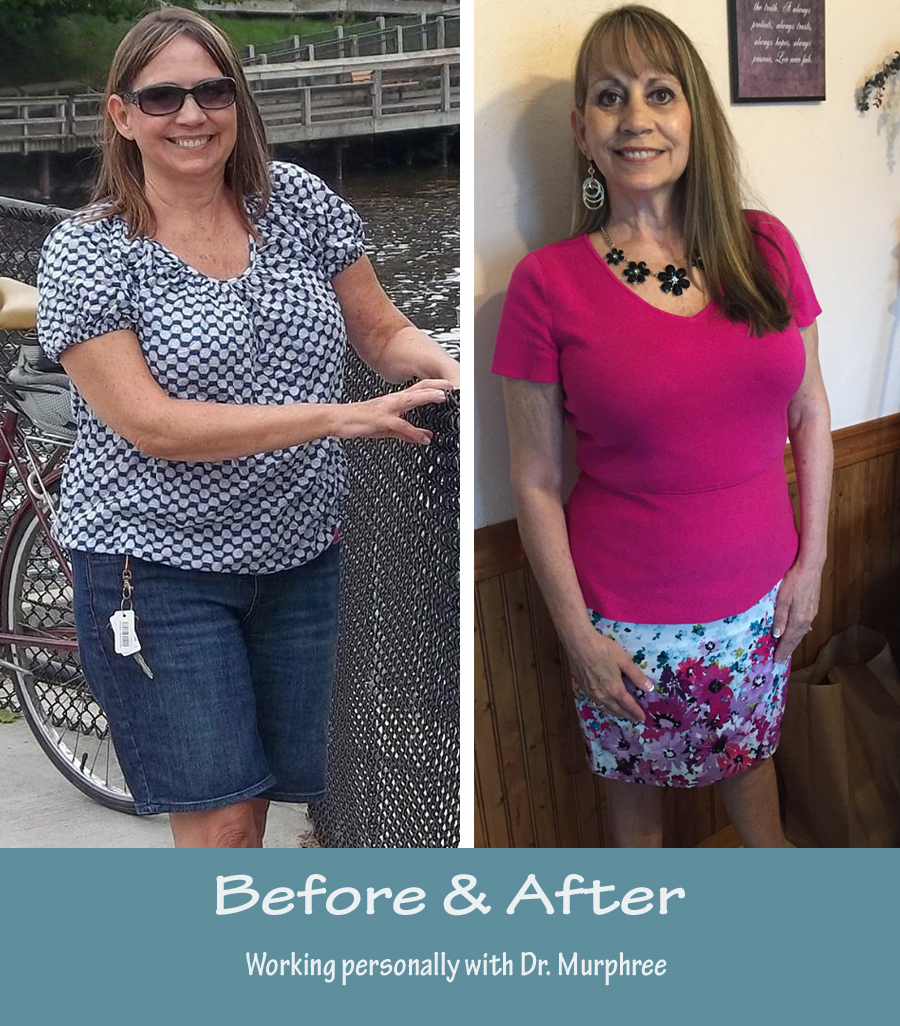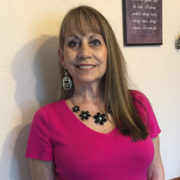Charlotte Beats Fibromyalgia
updated Dec. 2022
“I had been to several doctors because I had intense pain, the brain fog, memory problems and I just couldn’t figure out what was going on. I even went to Mayo and they said, you need Cognitive Behavioral Therapy and you’ll be okay. Of course, that didn’t work out too far. I went to several doctors trying to get them to understand what I was going through. I was doing a lot of praying for God to help me find the answer to what I was going through. I was in intense pain. The pain would cause my body to have seizures with intense pain; I was having 7-8 seizures a day. I was pretty much bedridden at that point. I was in so much pain and so weak that I couldn’t get out of bed. My husband was having to do everything. I couldn’t play with my grandkids.
Now my adult children are constantly saying, “Wow mom it’s really nice to come visit you and you’re not in bed.” I was able to take a trip this year to Florida to be with my grandchildren. We just went to Wisconsin to my niece’s wedding, where before I could hardly even do Christmas. I used to be on 11 medications, 3 of them were for seizures and they weren’t working. Now I am down to 3. You have been a prayer answered for all that you’ve done for me. Here I am now, it’s just night and day.”
Charlotte Shares Her Fibromyalgia Success Story

Dr. M:
Hi Charlotte, thanks for joining me.
I really look forward to hearing your story. What I’d like to do is have you share if you will, a little bit about where you were previously before we met … your health journey with your fibromyalgia, how it started and tell us a bit about where you were before we started working together.
Charlotte:
I was in pretty bad shape as a lot of fibro people are. I had been to several doctors because I had intense pain, the brain fog, memory problems and I just couldn’t figure out what was going on. I even went to Mayo and they said, you need Cognitive Behavioral Therapy and you’ll be okay. Of course, that didn’t work out. I went to several doctors trying to get them to understand what I was going through. I was doing a lot of praying for God to help me find the answer to what I was going through. I was in intense pain. The pain would cause my body to have seizures with intense pain; I was having 7-8 seizures a day. Actually I was on Facebook and I saw your posts that you do. I was reading about you and listening to your telecast. I actually went and ordered your book and all through the book as I was reading it, I was like that’s me.
This guy knows, he understands about me. That’s when I ended up calling you, because I also found out that I was hypothyroid but they couldn’t keep my levels good. My level was up and down, so they didn’t know how to do it. They sent me to a thyroid specialist, an endocrinologist and he didn’t know what to do. He was going to do an ultrasound on my thyroid. Anyway, when I found you I was pretty much bedridden at that point. I was in so much pain and so weak that I couldn’t get out of bed. My husband was having to do everything. I couldn’t any longer play with my grandkids. It was pretty intense what I was going through, until I found you.
Now my adult children are constantly saying, “Wow mom it’s really nice to come visit you and you’re not in bed.” I was able to take a trip this year to Florida to be with my grandchildren. We just went to Wisconsin to my niece’s wedding, where before I could hardly even do Christmas. I couldn’t go to Christmas programs or anything like that. I would have seizures in church because being up would be painful. You have been a prayer answered for all that you’ve done for me. Here I am now, it’s just night and day.
Dr. M:
You’ve worked really hard. When we first started working together, we found some things on the testing that showed really some of the reasons why you were progressing. What were your doctors telling you before we started working together? What were they suggesting?
Charlotte:
Basically the only thing that they suggested was Lyrica. I had tried many antidepressants that they also use for pain coverage; Lyrica just made me a zombie. I had to call the doctor within a couple of days, I said I can’t do this. I would sit down and I would fall asleep. They would say you’re depressed, but I said I’m not depressed. My mother had depression and I saw what depression does. I’ve worked in the health field since I was 18, and I knew what depression was. Yes, I would get down from being in pain so much and I couldn’t sleep … getting on the supplement that you put me on, for the first time I had a routine test on my thyroid and my levels were fine. That’s the first time in years that my levels were okay. I didn’t have to change medicines. You had put me on a supplement to help my body accept the medicine and work with it. I used to be on 11 medications, 3 of them were for seizures and they weren’t working. Now I am down to 3.
Dr. M:
That’s amazing. That makes me really happy to hear that because some of those medications were really doing some bad things to you long term. I’m so glad you were able to get off those. How many hours a day did you find yourself in bed?
Charlotte:
Before I read your book, it was most of the day. I would only get up and sit up for a short time, and then I would have to go back to bed. It was practically all day. I wasn’t sleeping at night, so sometimes I would just have to get up and go sit in the living room for a little while, but then I couldn’t sit up that long because I was so weak and I’d have to go back to bed. It was all day long.
Dr. M:
The reason why I asked you that is because there are a lot of people that are in that situation now. They’re almost bedridden because just like you, they have so much pain and they get so run down, they have no energy. Unfortunately, they think that that’s it. This is as good as it’s going to get, and it’s really sad when I hear that. Tell me about your migraines. You had a really hard time with your migraines. Those are doing better now, right?
Charlotte:
Yes, very much so. I had migraines where I would lose my vision, one side or the other. Yes, those have done a lot better. They were debilitating. I would get into bed and that would throw me into a seizure. I actually went 5 months without a seizure, so that’s wonderful.
Dr. M:
I never bring it up. I kept asking you early on and then I just quit asking about it, because I didn’t want to jinx you. I never ask you about those anymore. I just disown them, I don’t even want to talk about them … I’m so glad you’re not having them. Your energy is doing great. I know you went on those 2 trips and I’m so tickled you were able to do that. Tell me what a typical day is for you now, compared to what it was 6 months ago.
Charlotte:
Now I get up and I’m able to cook meals. I love to cook, I’m able to help my husband with things, I’m able to help my husband in the house. I’m expecting some company pretty soon, so I’m able to get up and do those things. I still have some bad days. If I’m over-stressed, I’m not getting sleep like I should then I will have a bad day. But my bad days now were my best days before I got with you. A bad day now is nothing compared to what it used to be. I know this is going to cause me to have a problem if I don’t eat right or stay on the diet, and I’ve figured out what the triggers are. Like I said, I couldn’t go where there was loud music or anything … Even to church if there was a worship band and it got loud, that would throw me into bad pain and migraines. It just got to be where I was pretty reclusive. I lost contact with friends because I couldn’t do anything. I was pretty isolated compared to what I am now. I go to my grandkids’ program with no problem, so it’s really good compared to what it used to be.
Dr. M:
We found that you had some food allergies and started working on those. As you mentioned earlier, what they were doing with your thyroid wasn’t working and we started adjusting that. Then you started on some supplements that were helpful, the Petadolex … all those things really combined to reduce the severity and the frequency of the migraines. Those are typically the common triggers: food allergies, something with your thyroid and then oftentimes the right supplements and knock on wood, you’ll continue to do well. Tell me about the diet. What was your experience with the diet, because you had a combination of food allergy diet and you also did the anti-inflammatory diet? What was that like?
Charlotte:
Actually it was easy for me because I was determined. I was desperate and I thought, I am going to be serious about this and do what is recommended for me to do. I did cut out the things that showed I would react to for the allergies, I cut back on those things. Then the anti-inflammatory, I was surprised at what things caused inflammation or added to it. I have actually stayed on that diet and I still find sometimes when I add something back in, my body is not ready for that yet so I’ll just take it back out again. I have to say your staff is just wonderful.
Any time I had questions or needed something or if I forgot to put in an order and had to add something, they were just so wonderful and kind … great ladies that work for you.
Dr. M:
They are, they’re fantastic. I tell you what they say the same thing about you, how wonderful you are. They’re crazy about you too and we’re so tickled how well you’re doing. Tell me, what have you learned working with me over the last 6 months now?
Charlotte:
The biggest thing is I’m not crazy, that it’s not all in my head, that it is real … though I knew it, I knew something was wrong. I’ve learned how to take care of it. Especially knowing the triggers, if I see something or I go to an event and see the wrong foods to eat, I don’t just indulge anymore. I stay away from what I know is going to trigger me. I may have a little bit of something, but usually I’m okay if I just have a little bit. I’ve also learned to take care of myself better, to make sure I’m getting the right sleep … I didn’t realize that sleep was very important for healing. I make sure now that I get proper rest. If I need to go lay down during the day, I take that time and do that. I don’t feel like I have to put on for somebody and make myself worse. Before, I was always in bed because I was just too sick to do anything.
Dr. M: What’s it like to be able to go to bed at night and know you’re going to be able to fall asleep and sleep? What’s that like?
Charlotte: It’s wonderful, it really is. There were times when I was up 4-5 times a night. At one point when I had the sick dog and I was up quite a bit with the sick dog, it immediately affected me so I knew what it was. I wouldn’t be able to get proper rest, so it’s nice being educated about it so that I can help myself also.
Dr. M: Absolutely. Tell me what would you like to share with those that might be listening tonight or listening to the replay?
In closing, what would you like to share with them about your experience working with me and my staff, or just anything in general that you think would be important that they know about.
Charlotte:
That there is a light at the end of the tunnel, that fibromyalgia is real. You know what you talk about, you know what you’re doing and you understand … which is a biggie. I think one of the best things is you know how to help and if something doesn’t help, you continue to find the answer. Maybe we haven’t shared something with you that’s critical to what you do. You have ways of getting that information from us, because we are forgetful if we have a lot of pain. It’s great that you know how to do that, and you know what helps us and work with us. I recommend you to everybody that I see that has this kind of problem. You are a godsend.
Dr. M: I appreciate you saying that. I’m so glad you’re doing so well and I look forward to you staying that way.
Charlotte: Thank you so much, I appreciate it.
Dr. M:
You’re so welcome. I want to thank Charlotte for joining me this evening. She’s just a delight as you can hear. You can hear how happy she is to be able to spend time with her family.
That’s what happens with people with fibromyalgia; it’s not just you that it robs of you of your life, but it affects everyone in your life. It affects your spouse, your children, grandkids, your friends, and coworkers if you’re still able to work. It affects everyone around you, it’s an illness that just robs you of everything if you’re not careful. I encourage you if you’ve not taken the time to go to the website www.YourFibroDoctor.com, do that and look at all the success stories. Certainly I’d love to help you and work with you one on one, or work with you by you reading the book and getting the information and applying that. Even if we don’t have a chance to meet, I want to instill in you a sense of hope that you can feel better. Don’t let someone tell you that you just have to learn to live with it.
Once they have the diagnosis of fibromyalgia, patients often think that, that’s it, and so does the doctor. They tell you that all the symptoms that you have – low energy, depression, anxiety, restless legs syndrome, irritable bowel, constipation, cold hands and feet, tingling in your hands and feet, headaches, migraines, weight gain, high cholesterol, high blood pressure … all those symptoms have to do with your fibromyalgia. Those symptoms mirror the very symptoms of hypothyroidism or low thyroid. If they’re doing basic testing, then oftentimes they don’t catch what they need to catch to help you with thyroid.
As you heard Charlotte talk about it, they never could regulate her thyroid. In her case, we did a special test called reverse T3 and we found that the medications she was taking which was a synthetic T4 Thyroxine, was not converting into the active T3. You have 2 hormones, T3 and T4 and T4 has to convert into the active hormone T3, before you get any benefit from your thyroid. If you’re taking Synthroid, Levothyroxin or one of these synthetic medications, those meds are straight T4. Some people cannot convert them into the active T3. You go back to your doctor every 3 months, they do blood tests and on the blood tests the levels are bouncing around, or just as bad, the blood test looks the same every time you go back. They tell you everything looks good, just stay on your medications.
Meanwhile your hair is falling out, you’re gaining weight, you have problems with IBS, you have no energy and you can barely get out of bed, but they’re telling you everything looks good so stay on your medication. Well, it’s not working because it’s not converting. Other patients get the basic tests because the doctor is being the typical doctor; once you get fibromyalgia, they do just do the basic test and tell you that because you have fibromyalgia, you have to learn to live with it. They’re not doing free and total T4. You should ask that they do free and total T4, along with your TSH. I go into great detail about that in the book. You need to know what those numbers are. It could be your TSH is ok, but your other thyroid parameters are off. If you saw that, then you can make some adjustments either in changing your medication or getting on medication that you need to be on. It could be that you have elevated thyroid antibodies, TPO or TGB. They’re not doing that test because your TSH looks normal, so they tell you that everything looks okay.
The problem is, if you have elevated thyroid antibodies, it means you have an autoimmune condition called thyroiditis, or Hashimoto’s thyroiditis, where the body is attacking your thyroid tissue. It does that oftentimes out of stress. The number 1 reason for low thyroid function is this thing called Hashimoto’s thyroiditis.
If you’ve got that, you certainly want to know that because it can be fixed. Doctors won’t test for that until your TSH is now really elevated, then they’ll tell you that you have Hashimoto’s thyroiditis so now we’re going to treat it with Synthroid and Levothyroxin. The problem is it can tale 5, 10, 15 years before you ever see that happen in the blood work. Because they’re doing basic blood work, they never see the beginning of this, that may happen 10-15 years before it ever shows up in the basic blood work.
Meanwhile you’ve got 5, 10, 15 years of having all the symptoms of low thyroid – fatigue, hair loss, weight gain, tingling in hands and feet, cold hands and feet, depression, anxiety. All these things show up with low thyroid and they’re not treating it.
I want to encourage you if you’ve not seen some of the videos on the website, there are free videos that go into detail about your thyroid, I encourage you to watch those. Even better, I encourage you to get my book Treating and Beating Fibromyalgia and Chronic Fatigue Syndrome, where I have an entire chapter on thyroid and how if it underperforming, as it often is in those with fibro, it can cause many of the symptoms of fibromyalgia, low energy, anxiety, depression, brain fog, weight gain, pain, hair loss, and more.
Look at the chapter on thyroid and see if this may apply to you, because the thing about thyroid is it controls every cell in the body, every function in the body. When your thyroid is low, then everything slows down. Your energy slows down, your memory, your mental clarity, your moods, your digestion, you’re constipated, your immune system becomes compromised, you start having chronic sinus infections and upper respiratory infections, you start getting colds, and those kinds of things. Your cholesterol goes up because your liver can’t process and get rid of cholesterol like it should.
Your weight oftentimes goes up because your metabolism, your cellular energy goes way down and you can’t process food like you should … The calories become a problem and you start to gain weight. I encourage you to learn more about how thyroid can play a big role in your fibromyalgia.
I encourage you to learn more about that in my book, Treating and Beating Fibromyalgia and Chronic Fatigue Syndrome at www.getfibrobooks.com And I want to thank you for joining me tonight. This is Dr Rodger Murphree, YourFibroDoctor.com, author of Treating and Beating Fibromyalgia and Chronic Fatigue Syndrome. Thanks for joining me, and good night.
These patients and hundreds of others who’ve worked personally with me have in fact beaten their fibromyalgia. You can read or listen to their stories by clicking the link below:
|
|














Leave a Reply
Want to join the discussion?Feel free to contribute!